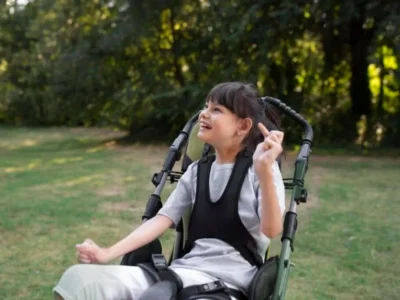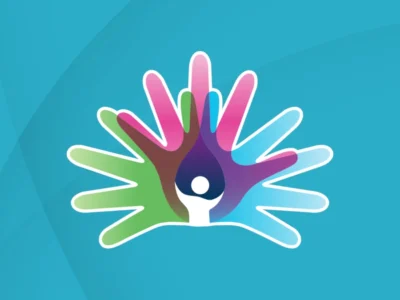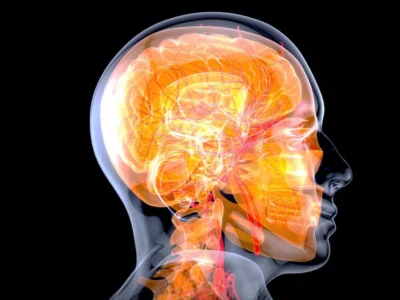The speech-language pathologist specializing in neurologically based disorders Valeria Bondarenko Gabets explains in this article how to help a person with aphasia through a caregiver’s guide. She provides guidelines for caregivers of people with aphasia and emphasizes behaviors that should be avoided.
Aphasia, a condition that affects the ability to communicate, can present unique challenges for both those affected and their caregivers. As a caregiver, your role is essential in providing emotional support and facilitating communication.
Caregiver-patient relationship
Maintaining a strong relationship between the caregiver and the patient, despite the communication difficulties associated with the aphasia, not only improves the patient’s quality of life but also enriches the caregiver’s experience. Patience, understanding and mutual commitment are fundamental pillars for overcoming communication challenges and cultivating a supportive environment.
In these situations building trust is fundamental. A strong relationship based on trust allows the patient to feel safe expressing their thoughts and needs, contributing to more effective communication. We must not forget that aphasia not only affects verbal communication, but can also generate frustration and anxiety. A strong caregiver-patient relationship implies reciprocal emotional support. The caregiver acts as a beacon of support, offering comfort and understanding, while the patient feels emotionally backed.
Patience and empathy
We must always keep in mind the need to foster patience and empathy.
Patience and empathy are crucial components of an effective caregiver-patient relationship in cases of aphasia. By understanding the patient’s difficulties, the caregiver can cultivate an atmosphere of mutual understanding, thus facilitating the overcoming of communication obstacles. We all know that when facing a condition such as aphasia, patience and empathy are essential, especially to be able to adapt to the patient’s changing needs and their condition at any given time. Maintaining open communication about daily experiences and challenges facilitates continuous adaptation and adjustment of support strategies.
Independence and autonomy
We must not forget that even when there is a communication limitation, independence and autonomy should be present in the lives of people with aphasia. Providing opportunities for decision-making and personal expression helps preserve dignity and the patient’s sense of control over their life. Even so, when facing significant challenges of the condition, teamwork to overcome obstacles and seek solutions creates an atmosphere of collaboration and shared strength.
In this article we would like to present the fundamental guidelines for caring for people with aphasia and behaviors that are crucial to avoid.
How to help a person with aphasia? Guidelines for caregivers of people with aphasia:
1. Clear and simple communication
Adapt your way of speaking to make it clear and simple. Use short, direct sentences, avoiding jargon. Provide context and patience to allow the person with aphasia to process the information.
2. Encourage nonverbal communication
Nonverbal communication, such as gestures and facial expressions, is a powerful tool. Encourage the person with aphasia to use these means to express their thoughts and ideas.
3. Establish consistent routines
Predictable routines provide security. Set regular schedules for daily activities and make sure the person is aware of them.
4. Encourage social participation
Encourage participation in social activities. This not only provides opportunities to practice language, but also counters possible feelings of isolation.
5. Use supportive resources
Use tools such as apps, images, or communication boards to facilitate the expression of ideas.
6. Support speech rehabilitation
Work with health professionals to follow a speech rehabilitation plan. Participate in therapy sessions and practice exercises at home. Consistency is key to progress.
7. Seek support for caregivers
Caring for someone with aphasia can be challenging. Find support groups where you can share experiences and get emotional support.
8. Ongoing education about aphasia
Continuously learn about aphasia to provide more informed and compassionate support.

Subscribe
to our
Newsletter
Behaviors to avoid
- Avoid ignoring or minimizing the feelings of the patient with aphasia. Empathy is essential to build a relationship of trust.
- Do not speak to them in a childish manner. Treat the person with respect and use a normal tone of voice.
- Avoid constantly finishing the patient’s sentences or words. Give them time to express themselves and do not interrupt.
- Avoid showing impatience or frustration. Patience is key, and expressing frustration can negatively affect the patient’s confidence.
- Do not speak for them or prevent them from expressing themselves. Encourage and support their efforts to communicate, even if it takes more time.
- Avoid neglecting nonverbal communication. Facial expressions, gestures and eye contact are crucial for effective communication.
- Do not overprotect or disregard the patient’s independence. Encourage their autonomy and participation as much as possible.
- Not seeking professional help when necessary can slow progress and affect your relationship with the patient with aphasia. The intervention of speech therapists or other professionals can be vital to improving communication.
- Avoid failing to adapt the environment to facilitate communication. Use visual tools, such as images or communication boards, as needed.
- Caring for someone with aphasia can be emotionally demanding. Do not forget to take care of your emotional well-being, seek support and take the necessary time to recharge.
Conclusion
The role of caregivers for people with aphasia is extremely important. There is no doubt that caring for people with aphasia requires sensitivity and dedication. A relationship of trust and respect between both parties is crucial for good progress. Rehabilitative professionals are there to attend to both patients with aphasia and their caregivers. Therefore, by following these guidelines and avoiding harmful behaviors, it is possible that together we can contribute significantly to the well-being and quality of life of those facing this condition.
If you enjoyed this article on how to help a person with aphasia, you may also be interested in these articles:
“This article has been translated. Link to the original article in Spanish:”
Cuidado de Personas con Afasia: Pautas Cruciales para Cuidadores







 Neuropsychology of aphasias from a process model: ‘I never thought speaking would be so difficult’, Broca’s aphasia, ‘what’s wrong with them that they don’t understand me?’, Wernicke’s aphasia
Neuropsychology of aphasias from a process model: ‘I never thought speaking would be so difficult’, Broca’s aphasia, ‘what’s wrong with them that they don’t understand me?’, Wernicke’s aphasia
Leave a Reply